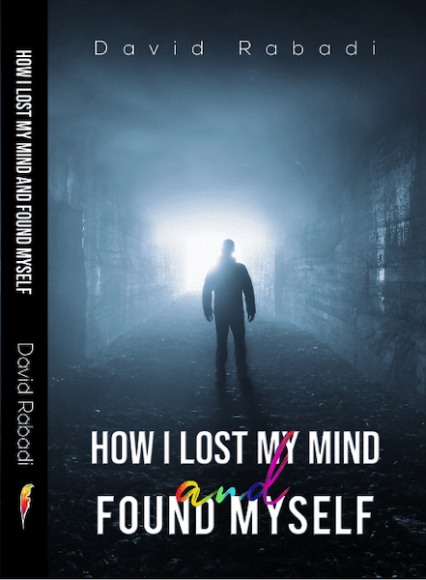In May of 2009, David Rabadi decided to head to Exit 5 on the Cross County Parkway in Yonkers – by walking on the median.
“I wasn’t trying to commit suicide,” he says. “I wanted to make a statement about gay Arabs and being true to myself and not living a double life.”
Nevertheless, Rabadi, who had just come out and is bipolar, was handcuffed and taken to Westchester Medical Center in Valhalla where he spent three days. Embarrassed by an episode that was picked up by News12 Westchester and other media, Rabadi thought his psychotic breakdown was an adverse reaction to Adderall, which a doctor prescribed him as an appetite suppressant. (He wanted to lose 10 pounds.) But after a couple more episodes, Rabadi was diagnosed with bipolar 1 disorder, in which the manic episodes are extreme enough to have the patient hospitalized. Complicating the diagnosis was the Jordanian Rabadi’s decision to come out — a decision that would mean death if he were in the Middle East. Or, as Rabadi likes to put it, “The sentence for being gay and Arab is death – even when the sentence is self-inflicted.”
And yet, the abject pain of being mentally ill and rejected, even brutalized, for being gay in a stringent society led him to become an advocate for mental health, with the National Alliance on Mental Illness, and the LGBTQ community. It also led him to write the new memoir “How I Lost My Mind and Found Myself” (Austin Macauley, 217 pages, $23).
Growing up in Yonkers, Rabadi says, “I knew at a young age that I liked boys.” But being gay was frowned on in his family, so Rabadi suppressed it and dated girls. Yet even then the objects of his desires were always male, never female.
“I wish I could go back and tell my teenage self not to be afraid to come out then instead of waiting until the age of 30.”
When it finally happened, “my parents were very scared,” Rabadi says. “My father said, ‘You can’t be gay. There are no gay Arabs.’ He wanted me to go to Jordan. My parents thought this was all related to my psychiatric diagnosis.”
It took his mother a couple of years to come around. She said, “You’ve convinced me. I love you, but I live with your father, and he’s never going to accept you.”
Nevertheless, Rabadi sees his family, including his father. He feels his father accepts him but cannot verbalize it. “Men try to suppress their feelings,” Rabadi says.
While he was angry about the situation, he says he learned that though life doesn’t necessarily get easier, it can get better. Today, he says, “I’m in a much better place.” He’s “single but happy,” writing about fashion, entertainment and life’s journey for Splashmags.com. Through the National Alliance for Mental Health’s “In Our Own Voice” program, he shares his story. He also volunteers with the nonprofit Westchester Disabled On the Move, helping others navigate the health-care world.
What his experience has taught him — what he shares with others — is that “you have more life to live when you live your own truth.”
David Rabadi’s “How I lost My Mind and Found Myself” is also available in paperback for $13.95 and as an e-book for $3.99. For more, visit davidrabadi.com.






